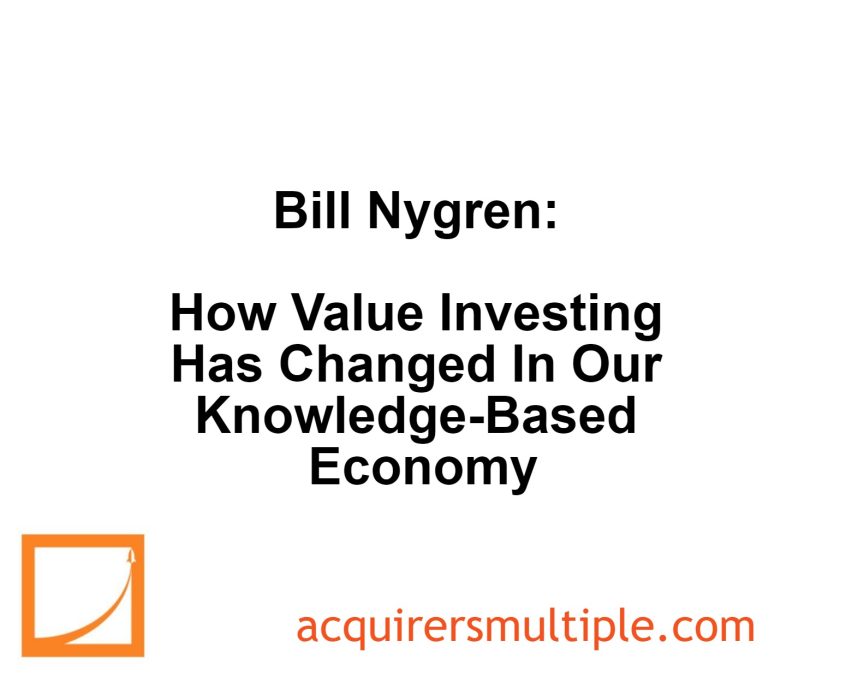During his recent interview with Morningstar Magazine, Bill Nygren discusses value investing, emphasizing paying prices significantly below a company’s business value.
He critiques traditional metrics like price/book or P/E ratios, noting their diminishing relevance in today’s knowledge-based economy. GAAP accounting’s conservatism often misrepresents modern investments, such as customer acquisition and R&D, by immediately expensing them.
Historically, this misrepresentation affected sectors like cable-TV, leading to undervaluation. Today, Nygren sees similar undervaluation in tech companies, such as Alphabet, when adjusting for growth investments. He stresses the need to educate shareholders on these adjustments to recognize true value.
Here’s an excerpt from the interview:
Nygren: To us, value investing is paying a price that’s a significant discount to the business value of the company. To David’s point, for probably too long, most of our competitors defined business value based on price/book or P/E ratios.
At the beginning of my career back in the ’80s, that worked decently well because it was a more tangible economy back then. But the problem is that GAAP accounting takes pride in its conservatism.
If you can’t touch or feel something, the accountants believe it doesn’t belong on the balance sheet. Consider an auto-parts company building a new plant expected to last 20 years. It goes on the balance sheet, and you depreciate 5% of it a year to try to match the cost of that plant to each year’s flow of revenue.
But if I spend money today on customer acquisition costs and I expect that customer to be with me on average for 10 years, that goes straight through the income statement. It’s a growth expenditure, but it’s immediately expensed.
Brand advertising, research and development—straight through the income statement. And these expenditures have become so much more important today as we’ve gone to a more information- or knowledge-based economy.
There have always been stray examples of companies that GAAP didn’t do justice to. Early in my career, it was the cable-TV companies—they had negative income each year, negative book value, yet there was a consistent flow of going-private transactions. Why?
Because the accountants made customer acquisition costs an immediate expense of the business, even though the cable customer tended to stay for a very long time. They had a relatively quick write-off of wires that were in the ground, even though useful lives lasted for a very long time. When you adjusted for that, you could see why private equity firms were willing to pay 10 times cash flow for cable companies.
We had examples of that in our portfolios in the ’80s, but it was one or two names out of 50. Today, there are probably 10 to 15 names in the Oakmark Fund OAKMX that are not going to look cheap on book value or P/E.
You have to dig into it, make adjustments for growth investments, for the cheapness to jump out at you. It’s important to educate our shareholders and potential shareholders so they don’t look at the portfolio and say, “They’re not value investors because Alphabet GOOG was a big holding for them.”
Alphabet looks really cheap if you separate out the cash, the venture capital investments they’re making, and you make an adjustment for that. We think you’re buying the search business at a significant discount to the market.
You can find the interview here:
For all the latest news and podcasts, join our free newsletter here.
Don’t forget to check out our FREE Large Cap 1000 – Stock Screener, here at The Acquirer’s Multiple:



